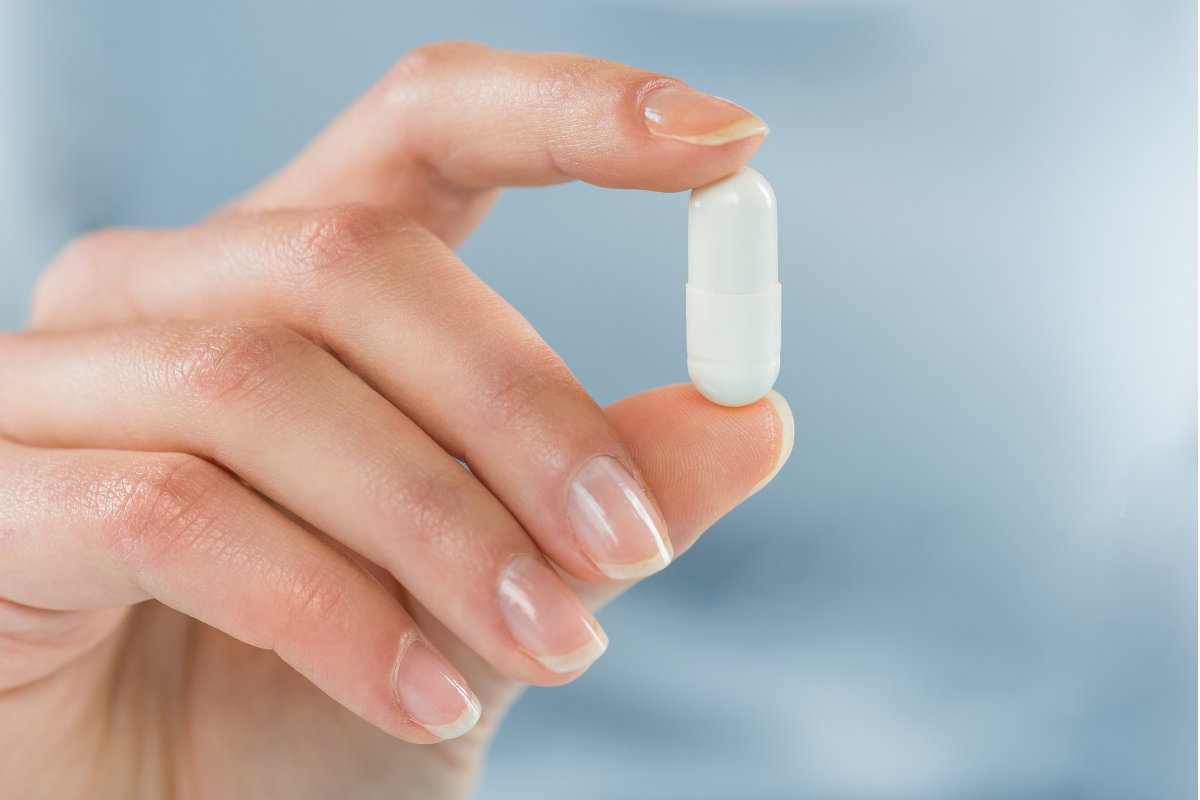Choline, an essential nutrient that is often overlooked, is essential for a number of vital physiological functions. Classified as a water-soluble molecule related to the B complex vitamins, it plays an active role in metabolic processes such as lipid transport, regulation of brain function and maintenance of cellular health. Although the human body can produce small quantities, dietary intake remains crucial to meet daily needs.
What are the health benefits of choline?
Choline and cognitive function
Choline is essential for the synthesis of acetylcholine, a key neurotransmitter involved in memory and learning. Studies have shown that adequate levels of choline help to slow age-related cognitive decline and may prevent neurodegenerative diseases such as Alzheimer’s disease. In addition, choline supplementation has been associated with significant improvements in short- and long-term memory.
Liver health
The liver plays a central role in fat metabolism, and choline is essential for preventing the accumulation of lipids, particularly in non-alcoholic fatty liver disease (NAFLD). Choline deficiency can lead to liver damage, underlining its importance in maintaining optimal liver function.
Cardiovascular health
By helping to reduce inflammation and regulate lipid metabolism, choline plays a protective role against cardiovascular disease. However, its interaction with TMAO (trimethylamine N-oxide), a metabolite produced by the intestinal microbiota, raises questions about its potential role in cardiovascular risk.
Pregnancy and foetal development
Choline is essential for the development of the nervous system in the foetus. Adequate intakes in pregnant women reduce the risk of congenital malformations and improve the cognitive abilities of newborns.
Intestinal health and microbiota
Choline influences the balance of the intestinal microbiota, improving barrier function and reducing intestinal inflammation. It also contributes to the synthesis of phosphatidylcholine, essential for healthy cell membranes.
Which food contains the most choline?
Choline, an essential but often overlooked nutrient, plays a vital role in key functions such as metabolism, memory and liver health. Of the foods rich in choline, animal products dominate. Eggs, for example, are an exceptional source: a single egg, particularly the yolk, contains around 250 mg of choline, making it an accessible and nutritious option for meeting daily needs.
Liver, whether from beef, chicken or other animals, is even more concentrated, with almost 350 mg of choline per 100 g, far surpassing other foods. Lean meats such as chicken and turkey, and oily fish such as salmon and cod, also provide significant amounts of choline, although less than eggs and liver.
Where is choline found?
For those following a vegetarian or vegan diet, there are alternatives. Soya, nuts and certain cruciferous vegetables such as broccoli and Brussels sprouts provide choline, albeit in smaller quantities. These plant-based options can nevertheless help to diversify choline intake, particularly for those who do not eat animal products.
When should you take choline supplements?
However, certain populations, such as pregnant women, athletes or the elderly, have increased needs that may exceed what the diet alone can provide. In these cases, choline supplementation may be considered. Supplements such as choline bitartrate support general metabolism, while citicoline is often favoured for its effects on memory and cognitive functions.
However, caution is advised: excessive intakes can lead to side effects, including nausea, a drop in blood pressure or an increase in TMAO, a metabolite linked to cardiovascular risks.
To easily incorporate choline into your daily routine, opt for egg-based meals or occasionally include liver in your menus. If you prefer plant-based options, prepare soya-based dishes and add choline-rich vegetables such as broccoli. A salad combining eggs, nuts and green vegetables is an excellent way to combine taste and nutrition.
What are the signs of choline deficiency or excess?
| Aspect | Symptoms and effects | Populations at risk |
|---|---|---|
| Signs of choline deficiency | – Persistent fatigue and reduced energy. | – Vegans: diet often low in animal sources rich in choline (e.g. eggs, liver). |
| – Cognitive problems: difficulty concentrating, memory loss. | – Pregnant women: increased needs for foetal development. | |
| – Hepatic steatosis: accumulation of fat in the liver, which can lead to long-term damage. | – Elderly: reduced absorption and frequent deficiency in this population. | |
| – Muscular problems: muscle weakness or cramps. | ||
| – Increased cardiovascular risk due to poor lipid metabolism. | ||
| Dangers of excess choline | – Nausea and digestive discomfort. | Any individual consuming large quantities of choline-based dietary supplements without medical supervision. |
| – Hypotension: dangerous drop in blood pressure. | ||
| – Increase in TMAO: a metabolite linked to increased risk of cardiovascular and inflammatory diseases. |
Sources
- Larsen, R., Chakroun, S., Létourneau-Montminy, M. P., & al. (2024). Modulation of the Plasma Lipidomic Profile in Piglets Fed Polar Lipid-Rich Diets. Metabolites, 14(12), Article 673.
- Pinheiro, I. (2024). The Role of the Intestinal Microbiota in NAFLD Onset and Progression. IntechOpen.
- Carton, L., Landmann, C., Auger, F., Durieux, N., & Laloux, C. (2024). Does concomitant diazepam and ethanol use modulate age-related cognitive decline in mice? Life Sciences, Elsevier.
- Canul, C. D., Esqueda, A. O. V., & Campos, R. R. (2024). Methyl Group Donor Supplementation in a MetALD Model: Regulation of Gut Microbiota and Metabolic Parameters. Annals of Hepatology, Elsevier.
- Cheng, Z., Kang, M., Peng, X., Ren, L., & Xie, J. (2024). Self-Assembled Eutectogel with Cell Permeation and Multiple Anti-Inflammatory Abilities for Treating Chronic Periodontitis. Advanced Materials, Wiley.
- Zhou, Y., Lv, J., Jin, S., Fu, C., Liu, B., Shen, Y., & Li, M. (2024). Gut Microbiota Derived Metabolite Trimethylamine N-Oxide Influences Prostate Cancer Progression via the p38/HMOX1 Pathway. Frontiers in Pharmacology.
- Duteweert, R. J. A. (2024). Improving Preoperative Imaging for the Localisation of Parathyroid Adenomas. University of Twente.
- Ye, Y., Yang, L., Jiang, P. P., Sangild, P. T., Hui, Y., & Nielsen, D. S. (2024). Metabolomics Reveals Changes in Levels of Fecal Branched Chain Amino Acids and Organic Acids in Very Preterm Infants Fed Human Milk Fortified with Bovine Colostrum. Clinical Nutrition, Elsevier.
- Mchiza, Z. J. R., Ortenzi, F., & Parker, W. (2024). Nutrient Density: Evidence of Multisectoral Approaches for Improved Nutrition. Frontiers in Nutrition.
- Yuan, J., Wu, Q., Guo, Y., Tang, Y., Gao, S., & Sun, Y. (2024). Wolfberry Honey and Its Extract Alleviate Dextran Sodium Sulfate-Induced Ulcerative Colitis by Improving Intestinal Barrier Function and Reducing Oxidative Stress. Molecular Nutrition & Food Research, Wiley.





